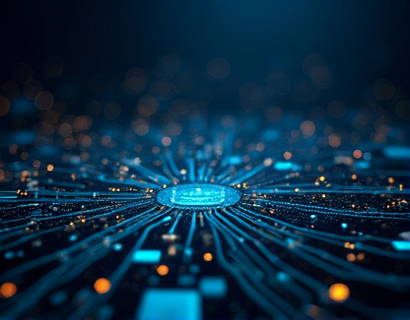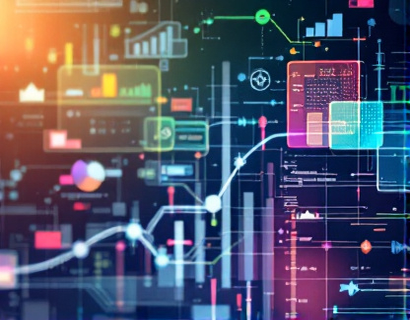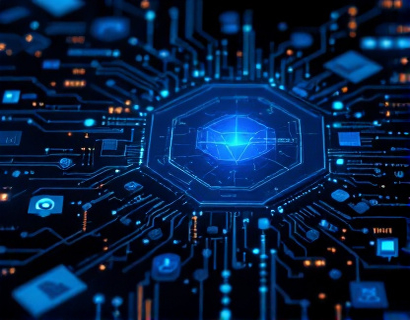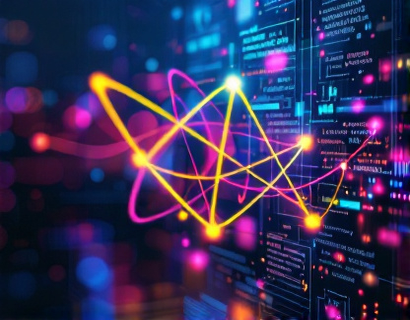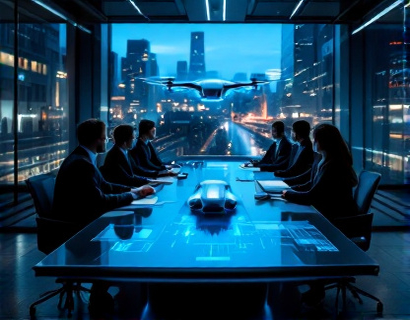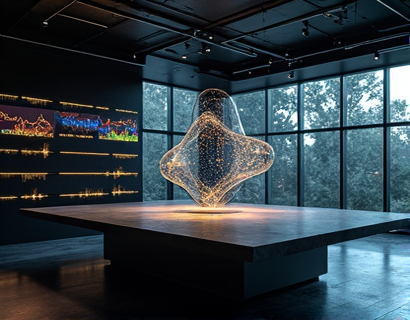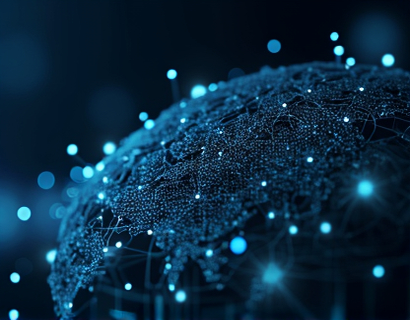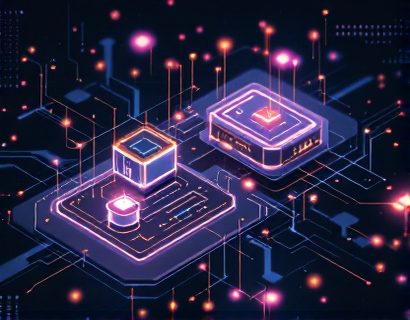Unlocking Enhanced Digital Experiences: Harnessing AI and Crypto for Innovative Solutions
The digital landscape is rapidly evolving, driven by groundbreaking technologies such as artificial intelligence (AI) and cryptocurrency. These two domains, though distinct, are increasingly intertwining to create innovative solutions that enhance user experiences and push the boundaries of what is possible in the tech world. This article delves into the powerful synergy between AI and cryptocurrency, exploring how their convergence can unlock new potentials and drive significant advancements in various sectors.
The Intersection of AI and Cryptocurrency
AI and cryptocurrency represent two of the most transformative technologies of our time. AI, with its ability to process vast amounts of data, learn from patterns, and make intelligent decisions, has revolutionized industries ranging from healthcare to finance. Cryptocurrency, on the other hand, has redefined the way we think about money, offering decentralized, secure, and transparent transactions. When these technologies converge, the possibilities for innovation become vast.
The intersection of AI and cryptocurrency is particularly evident in the development of smart contracts. Smart contracts are self-executing contracts with the terms of the agreement directly written into code. AI can enhance smart contracts by providing predictive analytics, automating complex decision-making processes, and ensuring higher levels of security and efficiency. This synergy not only streamlines transactions but also reduces the need for intermediaries, lowering costs and increasing trust.
Enhancing Security Through AI and Cryptography
Security is a paramount concern in both AI and cryptocurrency domains. AI can significantly bolster security measures by detecting and mitigating threats in real-time. Machine learning algorithms can analyze patterns and identify anomalies that may indicate a security breach. In the context of cryptocurrency, AI-driven security solutions can monitor blockchain transactions, detect fraudulent activities, and enhance the overall integrity of the system.
Cryptography, the practice of securing communication, is inherently linked to cryptocurrency. AI can improve cryptographic techniques by generating more complex and secure encryption methods. For instance, AI can assist in the development of quantum-resistant algorithms, ensuring that cryptocurrency remains secure even in the face of advanced computational threats. This fusion of AI and cryptography not only protects user data but also builds confidence in the digital economy.
Personalized User Experiences
One of the most exciting applications of AI in the cryptocurrency space is the creation of personalized user experiences. AI algorithms can analyze user behavior, preferences, and transaction history to provide tailored recommendations and services. For example, a cryptocurrency exchange can use AI to suggest optimal trading strategies based on a user's past trades and market trends. This level of personalization not only enhances user satisfaction but also increases engagement and loyalty.
Moreover, AI-powered chatbots and virtual assistants can offer 24/7 customer support, answering queries and providing assistance in real-time. These AI-driven tools can understand natural language, making interactions more intuitive and user-friendly. In the realm of digital finance, such personalized and efficient services can significantly improve the user experience, making complex financial operations more accessible to a broader audience.
Decentralized Finance (DeFi) and AI
Decentralized Finance (DeFi) is a rapidly growing sector that leverages blockchain technology to create financial systems without traditional intermediaries. AI plays a crucial role in enhancing DeFi platforms by providing advanced analytics, risk management, and automated trading. AI algorithms can analyze market data, predict price movements, and execute trades with high precision, reducing human error and increasing profitability.
AI can also help in identifying and mitigating risks in DeFi protocols. By continuously monitoring transactions and network activity, AI systems can detect potential vulnerabilities and suggest corrective measures. This proactive approach to risk management is essential for the stability and growth of DeFi ecosystems. Additionally, AI can facilitate the creation of more sophisticated financial products, such as decentralized lending and borrowing platforms, which offer better terms and greater accessibility.
Supply Chain Optimization
The supply chain industry stands to benefit greatly from the integration of AI and cryptocurrency. AI can optimize supply chain operations by predicting demand, managing inventory, and streamlining logistics. For instance, AI algorithms can analyze historical sales data and market trends to forecast future demand, ensuring that inventory levels are optimized to meet customer needs without excess stock.
Cryptocurrency can enhance transparency and traceability in the supply chain. By using blockchain, each step of the supply chain can be recorded in a tamper-proof ledger, providing a clear and verifiable history of the product's journey. This transparency not only builds trust among stakeholders but also helps in quickly identifying and addressing issues such as delays or quality concerns. AI can further enhance this process by analyzing blockchain data to identify patterns and suggest improvements.
Tokenization of Assets
Tokenization, the process of converting real-world assets into digital tokens on a blockchain, is another area where AI and cryptocurrency converge to create innovative solutions. AI can analyze market conditions, assess asset value, and optimize token issuance strategies. This ensures that tokens are priced fairly and attract the right investors.
In the real estate sector, for example, AI can help in valuing properties and identifying potential investment opportunities. By tokenizing these properties, investors can purchase fractional ownership, making real estate more accessible to a wider range of investors. AI-driven platforms can manage these tokens, handle transactions, and provide real-time updates on asset performance, enhancing the overall efficiency and liquidity of the market.
Enhancing Trust and Transparency
Trust and transparency are critical components of any digital ecosystem. AI and cryptocurrency together can significantly enhance these aspects. Blockchain's inherent transparency ensures that all transactions are visible and verifiable, reducing the risk of fraud and corruption. AI can further enhance this by providing advanced auditing tools and real-time monitoring systems.
Smart contracts, powered by AI, can automate and enforce contractual obligations with precision and reliability. These contracts execute automatically when predefined conditions are met, eliminating the need for manual intervention and reducing the risk of disputes. This level of automation and transparency fosters greater trust among users and stakeholders, paving the way for more robust and reliable digital interactions.
Challenges and Considerations
While the potential of AI and cryptocurrency is immense, there are several challenges and considerations that must be addressed. One of the primary concerns is regulatory compliance. The rapidly evolving nature of these technologies often outpaces existing regulations, leading to legal uncertainties. It is crucial for developers and businesses to stay informed about regulatory changes and ensure that their solutions comply with local and international laws.
Another challenge is the technical complexity involved in integrating AI and cryptocurrency. Developing robust and secure systems requires expertise in both domains, which can be a barrier for many organizations. Collaboration between tech experts, legal advisors, and industry stakeholders is essential to overcome these challenges and create innovative solutions that are both effective and compliant.
Future Prospects
The future of AI and cryptocurrency is bright, with numerous opportunities for growth and innovation. As technology continues to advance, we can expect to see more sophisticated AI algorithms, more secure cryptographic methods, and more widespread adoption of blockchain-based solutions. The convergence of these technologies will likely lead to the development of new industries and business models, further transforming the digital landscape.
For tech-savvy innovators and early adopters, the intersection of AI and cryptocurrency presents a fertile ground for exploration and experimentation. By embracing these technologies, individuals and organizations can stay ahead of the curve, capitalize on emerging trends, and contribute to the creation of a more connected, secure, and efficient digital world.
In conclusion, the synergy between AI and cryptocurrency holds the key to unlocking enhanced digital experiences and driving innovation. By leveraging the strengths of both technologies, we can build more secure, personalized, and transparent systems that benefit users and stakeholders alike. The journey ahead is exciting, and the potential for positive impact is immense.








